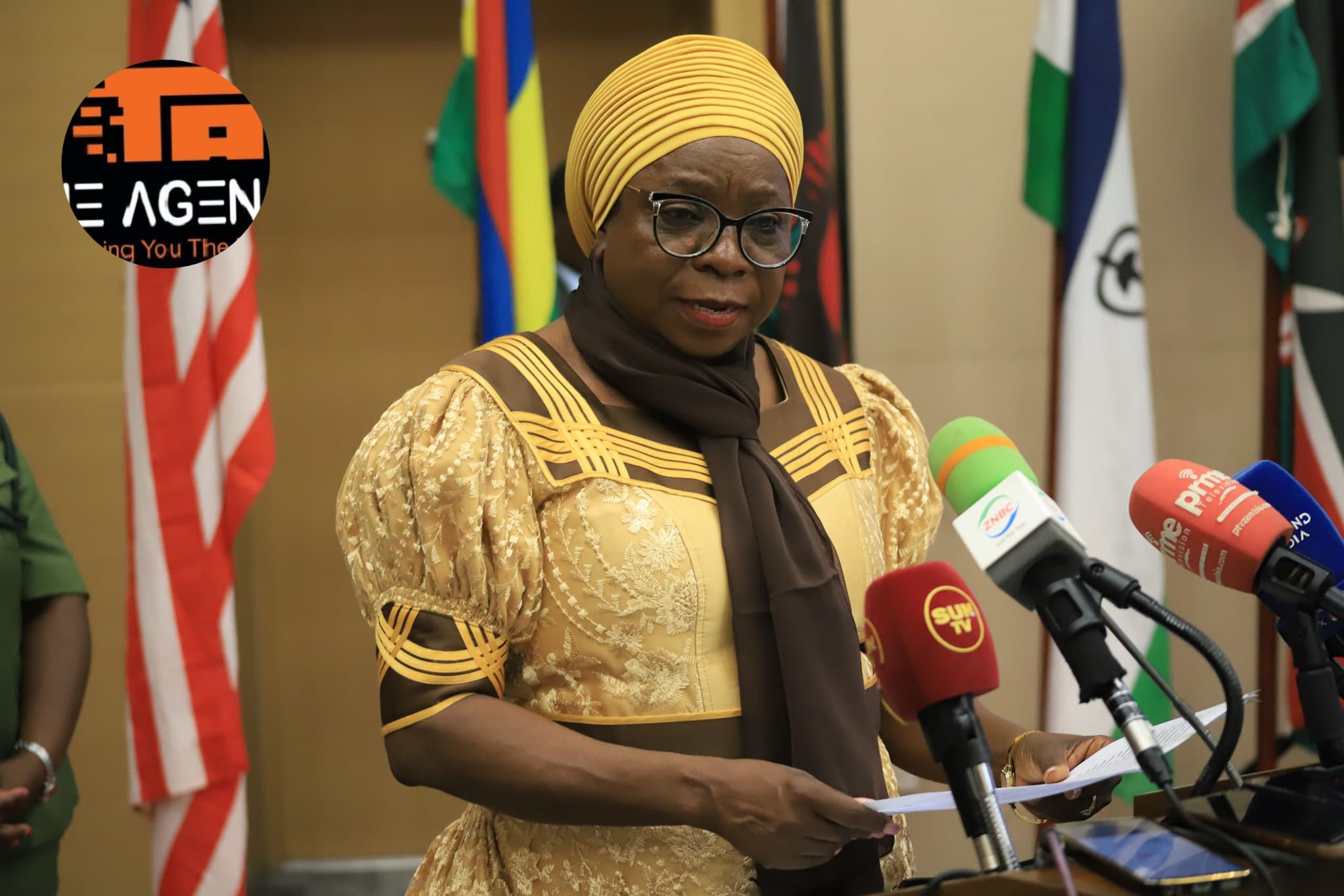Reported by: S. Ernest.
Date: 13th February, 2025.
Lusaka, Zambia.
Zambia reaffirmed its leadership in regional labour reforms as Vice-President Her Honour Mrs.W.K Mutale Nalumango, MP, addressed the 51st ARLAC Governing Council Meeting in Lusaka.
Speaking to a distinguished audience of ministers, international labour experts, employers, and workers’ representatives, she outlined Zambia’s commitment to fostering inclusive, sustainable, and resilient labour markets across Anglophone Africa.
In her address, the Vice-President emphasized the pivotal role of ARLAC (African Regional Labour Administration Centre) in strengthening labour administration and policy frameworks across the continent.
She underscored Zambia’s longstanding commitment to the organization since 1980, highlighting the country’s ongoing efforts to modernize labour policies, improve employment conditions, and address regional workforce challenges.
She further noted that labour market resilience requires transparency, accountability, and innovation—key principles guiding Zambia’s policy direction in tackling both emerging and persistent challenges.
The Vice-President presented an in-depth analysis of labour market trends in the ARLAC region, pointing out five critical areas requiring urgent intervention:
- The Informal Economy – Over 70% of the workforce remains in unregulated, informal employment, lacking social protection and fair wages.
- Youth Unemployment – With rates between 18-25%, young people continue to struggle with limited job opportunities and inadequate transition pathways from education to employment.
- Skills Gaps and Mismatches – Up to 45% of employers face difficulties in finding skilled workers, hampering economic growth.
- Gender Inequality – Women hold only 30% of formal sector jobs, limiting their economic empowerment.
- Inadequate Social Protection – Less than 30% of workers are covered by formal pension or social security schemes, leaving millions vulnerable to financial shocks.
In response, the New Dawn government through President Hakainde Hichilema has taken bold steps to reform its public pension system, a move approved by Cabinet on January 30, 2025, which is expected to expand social protection coverage and strengthen long-term financial security for workers.
The Vice-President outlined Zambia’s multifaceted approach to addressing labour challenges and fostering a more structured, equitable, and sustainable employment landscape:
Simplifying business registration to encourage small enterprises to transition into the formal economy.
Offering tax incentives and start-up loans to boost small and medium-sized businesses.
Leveraging digital solutions to enhance financial inclusion and improve compliance with labour regulations.
Strengthening collaboration between industry and education providers to ensure graduates have market-relevant skills.
Expanding Technical and Vocational Education and Training (TVET) programs to address skills mismatches.
The Vice-President called on governments, employers, labour organizations, and development partners to work together in addressing the identified challenges.
She stressed the need for coordinated policy reforms, workforce investments, and expanded social protections to drive economic growth and employment stability across the region.
As she officially declared the 51st ARLAC Governing Council Meeting open, Her Honour reaffirmed Zambia’s dedication to regional cooperation, innovative policymaking, and sustainable labour market development.
She urged stakeholders to capitalize on this platform to drive impactful change and ensure that no worker is left behind.
“Through collaboration, innovation, and strategic reforms, we can turn our shared challenges into opportunities for economic and social transformation,” she concluded.
Ministry of Labour and Social Security Zambia
The Agency

